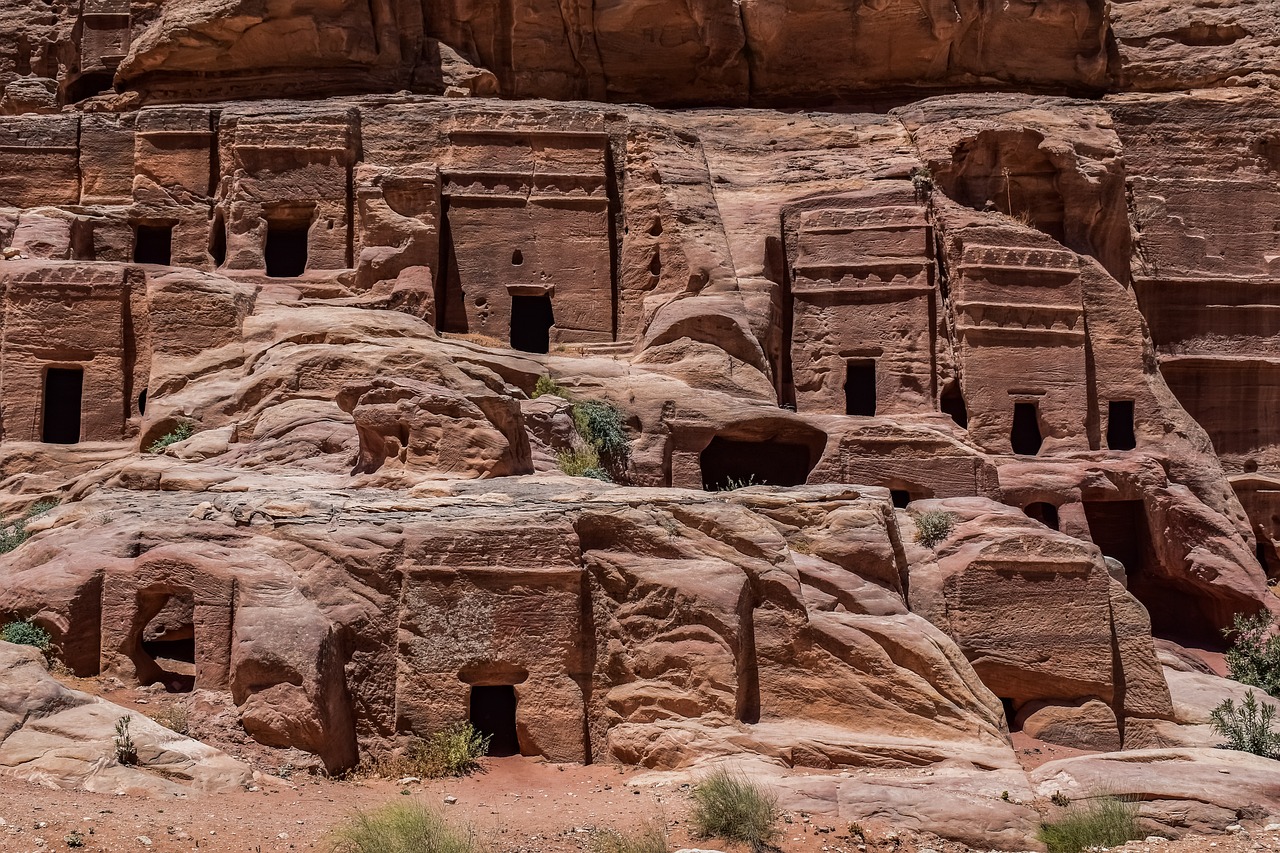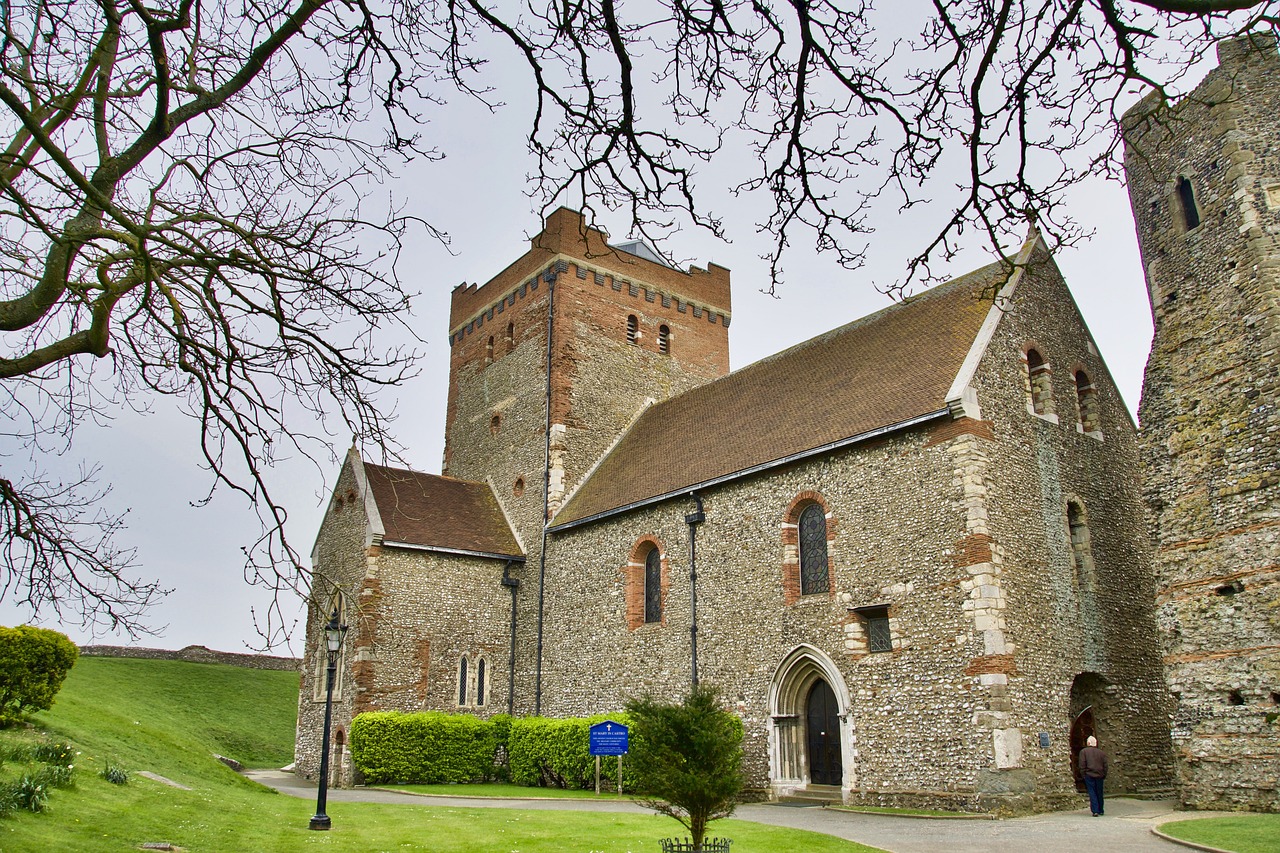The Significance of Heritage in National Identity
The heritage of a nation is like the roots of a mighty tree, anchoring its people to their history, culture, and traditions. It serves as a mirror reflecting the essence of a society, shaping its identity and fostering a deep sense of pride and belonging. The preservation of cultural heritage stands as a testament to the legacy of a nation, connecting past, present, and future generations in a timeless bond.

Preservation of Cultural Heritage
Preserving cultural heritage is like safeguarding a nation's soul, ensuring that the echoes of the past continue to resonate in the present and guide us into the future. Historical sites, ancient traditions, and precious artifacts are not mere relics of the past; they are the threads that weave together the tapestry of a country's identity. By protecting these treasures, we are not just conserving physical structures but also preserving the stories, beliefs, and values that define who we are as a people.
Imagine a world without the majestic pyramids of Egypt, the intricate temples of Angkor Wat, or the ancient city of Pompeii. These iconic landmarks not only serve as tourist attractions but also stand as testaments to the ingenuity and creativity of our ancestors. They are living reminders of our shared heritage and the accomplishments of civilizations long gone. Without preservation efforts, these wonders risk fading into obscurity, robbing future generations of the opportunity to marvel at their beauty and unravel their mysteries.
The act of preserving cultural heritage goes beyond maintaining physical structures; it is a commitment to honoring the stories and traditions passed down through generations. It is about cherishing the customs, rituals, and art forms that give color and depth to our cultural landscape. Whether it's the flamenco dance of Spain, the tea ceremony of Japan, or the carnival celebrations of Brazil, each cultural expression is a precious gem that deserves protection and promotion.
In a rapidly changing world where modernization often threatens the survival of heritage sites, the importance of preservation cannot be overstated. By safeguarding our cultural legacy, we not only foster a sense of pride and belonging among citizens but also attract visitors from around the globe who seek to immerse themselves in the rich history and traditions of a country. Cultural heritage preservation is not just a duty; it is a gift we pass on to future generations, a legacy that speaks volumes about who we are and where we come from.

Cultural Heritage Tourism
Cultural Heritage Tourism plays a pivotal role in attracting visitors from around the globe to explore the rich history and unique identity of a country. When tourists embark on a journey to heritage sites, they are not just seeking picturesque landscapes but also a deeper connection to the cultural roots of the destination. These sites serve as living testimonies of the past, offering a glimpse into the traditions, customs, and stories that have shaped a nation over centuries.
Imagine wandering through ancient ruins, walking the same paths as civilizations long gone, and witnessing the architectural marvels that stand as a testament to human ingenuity. Cultural heritage sites have the power to transport visitors back in time, allowing them to experience the essence of a bygone era firsthand. Each stone, each artifact, and each piece of art tells a story waiting to be discovered and cherished.
Moreover, cultural heritage tourism not only provides an enriching experience for travelers but also contributes significantly to the economy of the host country. By attracting a steady flow of tourists, these sites generate revenue that supports local businesses, preserves historical landmarks, and sustains the cultural legacy for future generations to appreciate.
Furthermore, heritage tourism serves as a platform for promoting the unique identity and history of a nation on a global scale. Through the lens of tourism, countries can showcase their diverse cultural heritage, traditions, and practices, fostering cross-cultural understanding and appreciation. Visitors have the opportunity to immerse themselves in local customs, taste traditional cuisine, and partake in age-old rituals, creating memorable experiences that transcend borders and languages.

Heritage Conservation Challenges
Heritage plays a crucial role in shaping a nation's identity, reflecting its history, values, and cultural richness. It serves as a link between the past, present, and future generations, fostering a sense of pride, belonging, and continuity. In this article, we will delve into various aspects of heritage and its impact on national identity.
Preserving cultural heritage is not without its challenges. Despite the importance of safeguarding historical sites, traditions, and artifacts, various obstacles hinder effective conservation efforts. One of the primary challenges is the lack of adequate funding for maintenance and restoration projects. Many heritage sites struggle to secure sufficient financial resources to ensure their preservation for future generations.
Urban development poses another significant challenge to heritage conservation. As cities expand and modernize, historical structures and sites often face the threat of demolition or alteration to make way for new infrastructure. Balancing the need for development with the preservation of cultural heritage remains a delicate and complex issue for many nations.
Natural disasters also present a serious risk to heritage sites, causing irreparable damage to centuries-old buildings, monuments, and artifacts. Hurricanes, earthquakes, floods, and other catastrophic events can devastate cultural treasures, highlighting the vulnerability of heritage to external forces beyond human control.
Moreover, the lack of public awareness and appreciation for cultural heritage contributes to its neglect and degradation. Without a strong sense of the value and significance of their heritage, communities may overlook the importance of preserving historical sites and traditions, leading to their gradual decline and eventual loss.

Intangible Cultural Heritage
Heritage plays a crucial role in shaping a nation's identity, reflecting its unique history, traditions, and values. It serves as a mirror that reflects the essence of a society, fostering a sense of pride and belonging among its people.
Intangible cultural heritage encompasses the living expressions and traditions passed down from generation to generation, including music, dance, language, rituals, and oral traditions. These intangible elements are deeply intertwined with a nation's identity, representing the soul and spirit of its people.
Imagine a vibrant dance performance that has been performed for centuries, carrying the stories and emotions of a community. This intangible heritage not only preserves cultural practices but also promotes cultural diversity and intergenerational transmission of knowledge.
Intangible cultural heritage serves as a bridge between the past, present, and future, connecting individuals to their roots and reinforcing a sense of continuity and belonging. It is a dynamic force that enriches society and contributes to the tapestry of a nation's cultural identity.

Heritage Education and Awareness
Heritage education plays a crucial role in fostering a deep appreciation for the cultural legacy of a nation. By integrating heritage into educational curricula, students can develop a sense of connection to their roots and understand the significance of preserving historical sites and traditions. Through interactive learning experiences, young minds can grasp the value of heritage conservation and its impact on shaping national identity.
Furthermore, raising awareness about heritage preservation among the general public is essential for garnering support and participation in conservation efforts. Educational initiatives, such as workshops, seminars, and guided tours, can engage communities in understanding the importance of safeguarding cultural heritage for future generations. By instilling a sense of pride in one's heritage, individuals are more likely to take proactive steps in preserving and promoting their cultural legacy.
Heritage education not only imparts knowledge about the past but also serves as a tool for promoting cultural diversity and tolerance. By learning about different cultural practices, languages, and traditions, individuals can develop a respect for the richness of human heritage. This awareness fosters a sense of unity among diverse communities and promotes social cohesion by celebrating the unique identities that contribute to the tapestry of a nation.

Heritage Legislation and Policies
Heritage legislation and policies play a crucial role in the protection and promotion of a nation's cultural heritage. These legal frameworks provide guidelines and regulations to safeguard historical sites, artifacts, and traditions for future generations. By enacting heritage laws, governments aim to preserve the identity and history of their country, ensuring that valuable cultural assets are not lost or destroyed due to neglect or development.
One key aspect of heritage legislation is the designation of heritage sites and monuments as protected areas. This ensures that these locations are recognized for their cultural significance and are legally safeguarded against any potential threats or alterations. Additionally, policies may outline specific conservation practices and restoration techniques to maintain the authenticity and integrity of these sites over time.
Moreover, heritage laws often address the issue of illicit trafficking of cultural artifacts, aiming to prevent the illegal trade of valuable heritage items that belong to a nation's history. By implementing strict regulations and penalties for smuggling or selling cultural property, governments can deter individuals or organizations from engaging in such activities and protect their heritage from being exploited.
Furthermore, heritage policies may include provisions for public education and awareness programs to promote the importance of cultural heritage preservation among the population. By raising awareness about the significance of heritage sites and traditions, governments can cultivate a sense of pride and responsibility in their citizens to actively participate in the conservation efforts and contribute to the preservation of their national identity.
In conclusion, heritage legislation and policies serve as essential tools in the protection and promotion of cultural heritage within a nation. By enacting laws that prioritize the conservation of historical sites, artifacts, and intangible traditions, governments can ensure that their country's heritage is safeguarded for future generations to cherish and appreciate.

Heritage and Social Cohesion
Heritage plays a crucial role in fostering social cohesion and unity among diverse communities within a country. It serves as a common thread that connects individuals from different backgrounds, fostering a shared sense of identity and belonging. When communities come together to celebrate and preserve their shared heritage, it creates a sense of pride and inclusivity that transcends cultural differences.
By acknowledging and appreciating the cultural heritage of various groups within a society, individuals can develop a deeper understanding and respect for one another. Heritage sites and traditions often serve as meeting points where people from all walks of life can come together to celebrate their shared history and values. This shared experience can help bridge divides and promote mutual respect and understanding.
Furthermore, the preservation of heritage can contribute to the economic and social development of communities by attracting visitors and promoting cultural exchange. When heritage sites are well-maintained and accessible to the public, they become spaces where people can gather, interact, and learn from one another. This interaction fosters a sense of community and solidarity, strengthening social bonds and promoting peaceful coexistence.
In essence, heritage serves as a powerful tool for promoting social cohesion and unity by celebrating the diversity and richness of a nation's cultural tapestry. By recognizing and preserving the heritage of all communities, we can build a more inclusive and harmonious society where individuals feel connected to one another through a shared sense of history and identity.

Digital Heritage Preservation
In the realm of cultural conservation, the emergence of digital technologies has revolutionized the way we document, preserve, and promote our rich heritage. Digital heritage preservation involves leveraging digital tools and platforms to safeguard and showcase cultural artifacts, historical sites, and intangible traditions in a virtual space that transcends physical boundaries.
Through high-resolution imaging, 3D modeling, virtual reality, and interactive websites, digital heritage preservation offers a dynamic and immersive experience for audiences to explore and engage with the past. It allows for the creation of digital archives that can be accessed globally, ensuring that valuable cultural resources are not only preserved for future generations but also made widely available to a diverse audience.
Moreover, digital heritage initiatives play a crucial role in education by providing interactive learning opportunities that bring history and culture to life. Students and enthusiasts can delve into virtual reconstructions of ancient civilizations, participate in virtual tours of heritage sites, and interact with digital repositories of cultural knowledge, enhancing their understanding and appreciation of heritage.
One significant advantage of digital heritage preservation is its ability to reach a broader audience beyond physical constraints. People from different parts of the world can virtually visit iconic landmarks, explore endangered heritage sites, and engage with cultural practices that may otherwise be inaccessible. This democratization of heritage promotes cross-cultural understanding, fosters appreciation for diversity, and encourages global collaboration in preserving our collective heritage.
While digital preservation offers innovative solutions for safeguarding heritage, it also raises important questions about authenticity, ownership, and sustainability. How do we ensure the accuracy and integrity of digital representations of heritage? Who owns the digital heritage content, and how can it be protected from misuse or exploitation? Additionally, the long-term preservation of digital archives requires ongoing maintenance, updates, and resources to prevent technological obsolescence and ensure accessibility for future generations.
In conclusion, digital heritage preservation presents a powerful opportunity to bridge the past and the future, blending tradition with innovation to conserve our cultural legacy in a rapidly evolving digital landscape. By embracing digital technologies in heritage conservation efforts, we can not only preserve our diverse heritage for posterity but also inspire a new generation of custodians to cherish and protect the treasures of our collective past.
Frequently Asked Questions
- What is cultural heritage?
Cultural heritage encompasses the tangible and intangible aspects of a society's history, including monuments, traditions, language, and rituals that are passed down through generations.
- Why is the preservation of cultural heritage important?
Preserving cultural heritage is crucial for maintaining a sense of identity, fostering pride, and promoting cultural diversity within a nation. It also contributes to tourism, economic growth, and social cohesion.
- What are the challenges faced in heritage conservation?
Challenges in heritage conservation include lack of funding, urban development pressures, natural disasters, and the need for sustainable preservation methods that balance modernization with historical preservation.
- How does heritage education play a role in preserving cultural identity?
Heritage education raises awareness about the significance of cultural heritage, instills pride in one's roots, and helps future generations appreciate and safeguard their cultural legacy.
- What is intangible cultural heritage?
Intangible cultural heritage refers to practices, expressions, knowledge, and skills that communities recognize as part of their cultural heritage. This includes music, dance, storytelling, and rituals that are transmitted orally or through demonstration.
- How can digital technology aid in heritage preservation?
Digital technology allows for the documentation, preservation, and promotion of cultural heritage in innovative ways, reaching wider audiences and ensuring that heritage is accessible to future generations.



















